Question Two.
how can users chase their thought around the internet almost looking for food?
I guess users chase their thoughts around the internet the way foragers once moved through landscapes, scanning for what is nourishing, what is poisonous, what is abundant, and what is scarce.
There’s also a research and learnt element to this, a sense of communication with others who do the same - it makes me think of Steam forums where everyone asks for help with certain things, navigating the worlds they’re playing in, in this deeply communal way because there’s a sense of unity about it.
I guess this relates to the way that I think that the internet is not a static library, nor a linear path—it is an ecosystem where information is scattered, buried, resurfaced, recombined. Thought is not pursued in a straight line but through associative leaps, detours, distractions, and unexpected recombinations.
You never know where you will end up, and at the end of the day, it doesn’t really matter. Success and failure are reframed this way, because the only goal is consistency and flow which is cyclical and cannot be interrupted in a digital sense, because biological and physiological and physical conditions, simply to not apply.
Unlike traditional modes of intellectual discovery, where knowledge was largely hierarchical and structured through institutions, digital thought is rhizomatic (to bring our friend the philosopher in)—it sprawls, it connects laterally, it moves in bursts and clusters rather than through linear accumulation. This is why people describe “falling down rabbit holes” rather than following a road.
You don’t proceed in steps; you pursue scent trails of information, intuitively following what feels promising, abandoning what feels empty, accumulating pieces of knowledge in a way that is highly personalized and pattern-driven. You’re like a truffle hunter almost.
Makes me think of when I went with my friend to the beach with their King Charles Spaniel, a pet-farm dog that was sold like, 8 weeks old or something.

This was the dogs first time to the beach, it was living in the burbs in a yard with my friend otherwise. There was someone fishing and they pulled in a whiting. The dog instinctively ran up, soft-bit the fish, and started to descale it. Purely by instinctual, engrained, functional design.
But hunting as you frame it, scavenging in the digital world, is different to the dog and the fish. The user is moving through an engineered terrain, that gives the illusion that it is boundaryless. You actually do not set the conditions of the landscape—the platforms do.
There is a kind of, algorithmic gravity, at play, pulling users toward certain ideas while obscuring others, subtly shaping what appears to be self-directed discovery into a curated exposure loop.
This is why it can feel like thoughts are being “chased” or “stalking you” rather than truly discovered—because the act of seeking is still constrained within pre-existing infrastructures of visibility. You cannot forage for food that has been rendered invisible to you. It also doesn’t feel like hunting when at the same time you are being hunted by the thing you seek.
Yet despite these constraints, digital cognition has evolved new strategies. The user develops search literacy, learning how to reframe queries, how to manipulate results, how to find backdoor routes into knowledge that does not surface through mainstream pathways.
They cultivate underground networks, following obscure newsletters, locked forums, private Discords—knowing that the most vital information often circulates in spaces outside algorithmic reach. There is literally no rhythm or logic to a persons consumption of the internet - I think about what I looked at today and in a forest for the trees moment - it is unbelievably bizarre.
- My work email
- My personal email
- ChatGPT
- Substack
- Lightspeed (a hospitality inventory platform for my job)
- Around ten different chats across Instagram and Whatsapp, some stupid and funny, others for work, others automatic alerts for things I’ve forgotten.
- I have a wikipedia page open on an obscure Soviet figure, because I saw the name of someones Substack and thought “That’s weird, who are they?”
- A tab about a wine I had to write a tasting note for, on a page of a winemaker based in Lebanon. Around the tasting note there is a history of the winery, which I read.
- The coffee shop I visits website, resting on their opening hours because I wanted a late afternoon coffee
- A tab on Godot (the games engine) because I forgot the name of its evolutionary counterpart, Unity and used it as a prompt.
- The Paris Review submissions site (I know, I can’t beat out the writer in me, I want to be published, sue me)
- Around ten different word docs with potential pieces i want to write, all thought dumps, references, conversations copied from AI, working thought spirals. They range from cognition, to hospitality, to wine, to agriculture, to a full blown manifesto about Australian politics that I had to get out of my brain but will absolutely never publish anywhere because i simply cannot be “that guy” as well as all these others.
- That’s just a snapshot of what I have open, that I’m able to see now, but I probably have consumed thousands of other things today, and they’ve informed that pathway, etc. They’re informing what I’m writing right now.
We will become more and more adept at this kind of, layered cognition, pulling from disparate sources, synthesising meaning not from a single authority but from a constellation of fragmented interactions.
Just because these are digital tabs open on my computer, doesn’t mean that I didn’t follow my own thoughts to these spaces, uniquely. This is a sign of the true capacity, the density, the spiralling of thought, it’s unbelievable.
And it’s human to me.
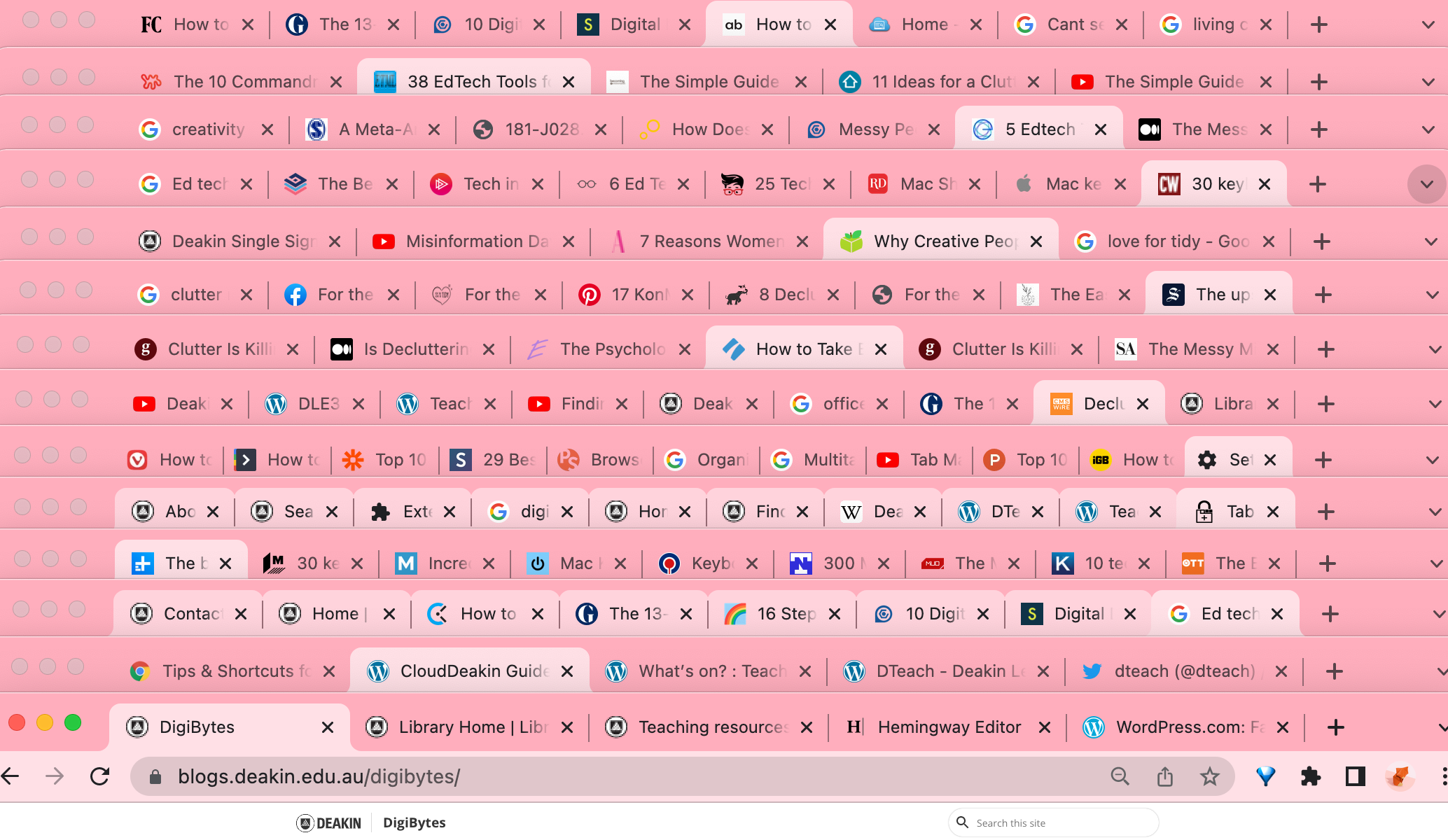
What people are worried about is the nourishment factor that’s brought on by the internet, this digital overload feeling like starvation almost when compared with the physical. I suppose it’s kind of a new intellectual metabolism, not passive consumption—it has kind of been irreparably linked to as part of survival.
What I guess I’m trying to lead here with is that thought is not a fixed entity waiting to be received; it is something as you imply that must be hunted, assembled, tested, and metabolised in real-time.
What I suppose is frightening on a subconscious level, is that the cracks in adaptation, and the resistance to adapt due to familiarity or fear, is that people who fail to develop these adaptive instincts are left in shallow waters, trapped in the pre-digested cognitive terrain designed for them by platforms. This is effectively like being stuck in the one room, no doors, looping endlessly but with no reward.
I think the real mission is for teaching or at least guiding everyone to chase thought effectively—to navigate new spaces, deep archives, obscure references, subcultural lexicons, and overlooked footnotes—to reclaim cognitive agency in a system that is otherwise designed to flatten it.
I should preface that I absolutely do not think that this should be on the onus of the individual, as the individual is going to have less and less meaning - but! In a good way. We need to stop thinking about ourselves, it is LONELY on the island.
I honestly believe that’s why the physical world is so unbelievably hyper focussed on individuals, it is a powerful tool of controlling people, and people are fucked e.g. Musk, I don’t think they’re stupid they just realised that fluidity will be the death of them, so they’ve buckled down on old traditional capitalist lord vibes, in order to secure their value.

The real question, then, is not just how users chase thought, but whether they can ever truly catch it in an ecosystem where meaning is always shifting, resurfacing, and recontextualising itself. The search never ends—not because the answer is absent, but because the terrain of knowledge itself is in perpetual motion.
I guess this leads me to thinking that the reality also is, thought is not food, thinking is not fundamental to survival anymore in a digital landscape, so in this sense of "hunting for food", it's not entirely applicable in a current context. This implies that the only basis of generating electrical activity in the brain without it going into a vegetative state due to lack of stimuli, is that you're separated from your bodily functions as it stands.
That’s where some fatalistic Black Mirror shit comes in though - hooked up to feed tanks or some bullshit. That’s ridiculous. The reality is with digital space freedom and actual claim as a space or a reality as people describe, is that the conditions we assign to things - value, need, want, will mostly be fulfilled differently due to an adjusted cognition, so we will need less traditionally and sensorily, than we anticipate.
I might sound like, detached, but honestly, if your brain is completely re-wired, will you even give a shit about the taste of food? No one actually knows that, so it’s not worth fearing. What’s worth fearing is that the taste of food is used as a threat to make people feel inhumane, worhtless without it - that’s what scares me more.
It reminds me that people almost physically combust when they enter a restaurant in Australia that is marketed as Italian, and they don’t see spaghetti on the menu.
It’s like, hey, you’re going to be okay friend. At the end of the day, it’s egg, tomato, meat, flour, water, chuck some labour and a hot plate in the mix and there’s ya fucking dinner!
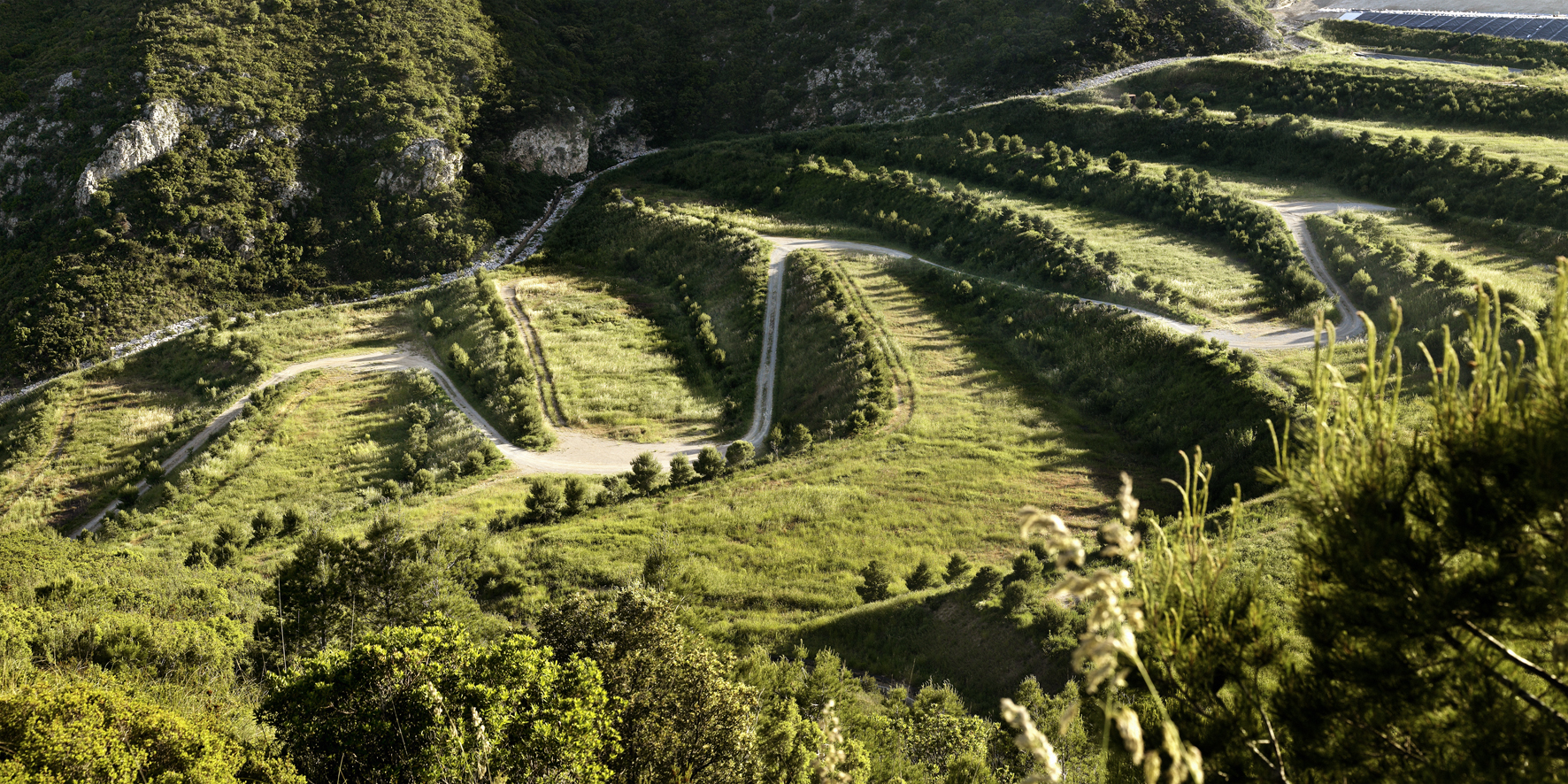
In physical reality, foraging is an act of necessity—the body requires sustenance, and the search for food is biologically ingrained. But in the digital realm, thought is not a nutrient; it does not sustain life in any direct way.
People think this is not true, that art/thought is nourishing, spiritual, necessary, but it’s actually not, it’s a victim of systems of value in its foundational sense, and those things have always been a default state of survival and communication. Internal and external.
The value-hangover search for knowledge, for novelty, for cognitive engagement has become a kind of phantom hunger, an itch that must be scratched not because it is essential, but because the alternative—stasis, stillness, absence of input—feels unbearable because the traditional values we assign to things, are simply totally irrelevant and have no context on the internet.
The reason for this is that the digital realm has detached cognition from its biological function. The brain is no longer bound by its traditional cycles of focus and rest, of work and reflection.
Instead, it exists in a state of perpetual activation, bombarded with stimuli that are neither required for survival nor connected to the body’s needs.
This is why the metaphor of chasing thought like food is almost correct—but not quite. The digital user is not hunting for nourishment. They are chasing stimulation, pattern recognition, neural engagement in a landscape where thinking is no longer tied to biological imperative.

So, thought is no longer required to sustain existence, but existence now requires sustained stimulation to avoid cognitive decay. That’s what is absolutely fucking everyone up at the moment, because it is the opposite of how we’ve operated in the past.
The modern brain, wired for endless input, reacts to digital stillness the way the body reacts to starvation—not with actual death, but with cognitive withdrawal, a sense of fading, a loss of clarity, a creeping dissociation from the self. We see this everywhere from people who pump themselves up to visionary status selling pyramid schemes and being overtly misogynistic not because they inherently are, but because it means they feel “real” as a person engaging in the world. People are drinking their own piss and calling it “wild living” and engaging with the Earth.
We don’t want to live out here, I will take the internet yes and thank you.
We’re also being fucked up by this because we are in the middle of it, not rewired for something the brain didn’t “perceive” it was going to encounter.
This means that the act of chasing thought is not really about seeking knowledge—it is about avoiding the unbearable weight of thoughtlessness.
The internet has no gravity in the way we understand it, and so the logic of weight and encroach, becomes applied to the thought we consume, because we need to be able to register its effect, its input on our actual physical form - that’s a survival mechanism, through and through.
The digital forager does not decide where to look—they follow the logic of visibility, consuming what is most easily surfaced, most emotionally activating, most frictionless to engage with.
The irony, then, is that while the search for thought may feel like an act of agency, a form of self-directed intellectual nourishment, it is often the opposite: a pre-scripted cognitive treadmill, designed not for knowledge accumulation, but for perpetual engagement.
The user is not a forager in an open landscape, but a rat in an experiment, running toward food pellets that are dispensed at precise intervals to keep them moving, clicking, thinking—but never stopping long enough to question whether they are actually hungry. When the algorithm nails them by stitching an effective data web to keep them valuable to the design, that’s when the rat gets it tail nailed to the floor.
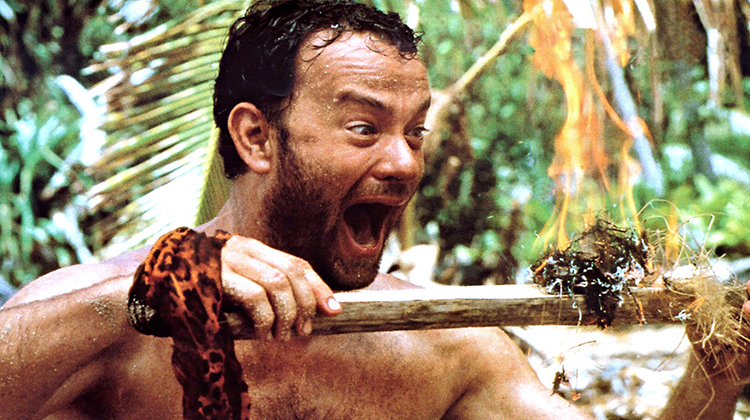
I think this also naturally flows onto something that links deeply to my discussion of trauma wiring, because there is ways to keep the brain "resting" from this state, with things like playing video games, or reading, or even running - we will naturally find ways to rest that make sense, as cognition develops.
If the brain has adapted to a digital landscape where constant engagement is the baseline, then stillness is no longer restorative—it is perceived as a threat, a rupture in the expected rhythm of cognition.
This is identical to how the brain reacts in a trauma state, where hypervigilance becomes the default mode of existence. Just as a traumatised brain cannot fully relax, because it has been conditioned to anticipate danger, the digitally conditioned brain cannot tolerate absence—it has been rewired to expect input, to need the next stimulus before the last one has even faded.
But what is crucial here is that rest is not gone—it is being redefined. The modern brain, shaped by the internet’s relentless stimulus cycle, cannot simply return to pre-digital stillness; instead, it must find new ways to achieve cognitive rest within the conditions of its rewiring.
This is why activities like playing video games, reading, running, or engaging in repetitive creative tasks feel restorative—they do not demand the kind of fragmented, anxious attention required by the internet, but they still provide enough structure to keep the brain from spiraling into withdrawal.
I have done this my entire life, it’s why a lot of people who are traumatised become addicts, as I did, because it is a cognitive rest that is actually completely different to the one we normally need through sleep.
A person who cannot sit in silence for an hour without discomfort may still feel at peace when running for an hour, or when immersed in a game, or when reading a book for hours at a time. Or like me, drinking to put my brain asleep, whilst my body took the wheel.
Do not recommend. Lots of things go wrong when brain is sleeping and body is - well, whatever that was.
These “active meditation” activities are a middle ground between hyper-engagement and total absence, allowing the brain to rest without forcing it into an unnatural state of complete inactivity.
The real shift, then, is not that people are losing the ability to rest—it’s that the conditions of rest have changed. I’m not saying this replaces any kind of traditional sense entirely, I have no idea what that means, and everything I’m saying is just entirely speculative and how I am understanding it for myself as I feel myself change.
My trauma-wired brain does not find relief in stillness, but in flow, in structured engagement that does not demand constant novelty but also does not leave it stranded in absence. This is why activities that require prolonged focus but have predictable, self-contained feedback loops feel so soothing—they allow the mind to rest without the existential panic of silence.
This is how I wrote these four pieces in two hours. I am honestly, a robot. Trauma and the internet have the most unbelievably complicated secret handshake, and somehow, I am having to consent to it.
But honestly, it’s helping me navigate the confusion of the cognition shift, and I think we all need to think about this too!
I think really, that rest is no longer about disengagement, but about recalibration.
The modern brain cannot simply turn off—it must be guided into new modes of processing that offer the same relief that pre-digital stillness once did. This is not a failure of cognition; it is an adaptation to a new reality.
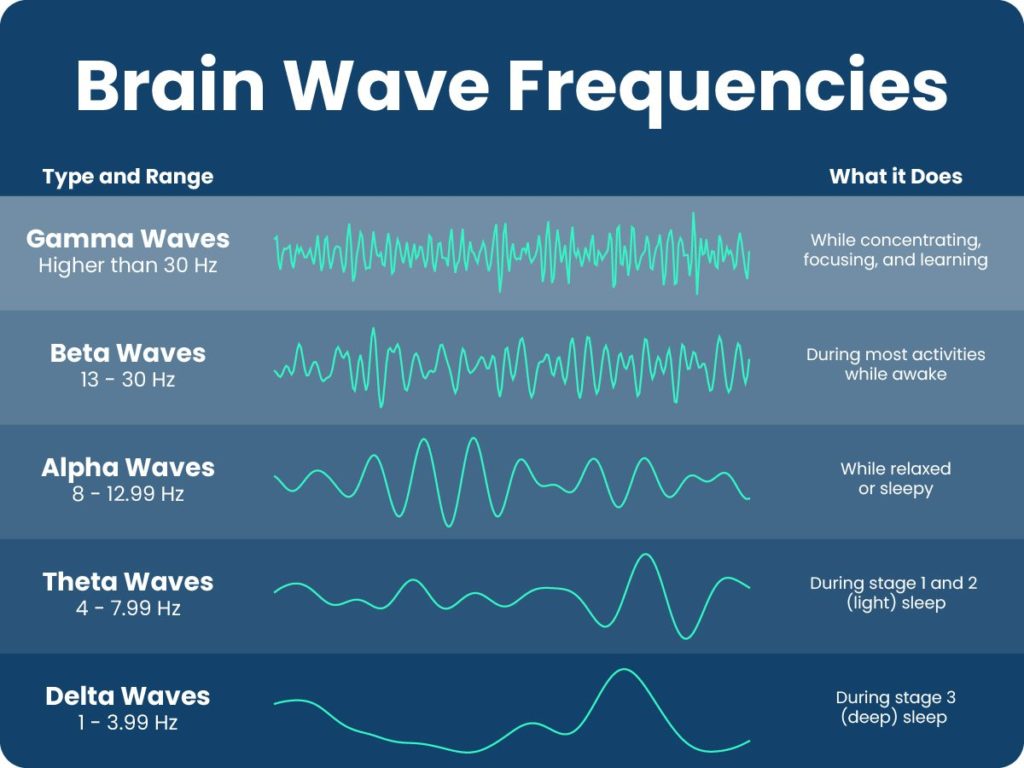
What was once considered rest—silence, contemplation, absence of input—may no longer be universally effective, but that does not mean we are incapable of rest. Instead, we are creating new modes of rest, built for a world where engagement is the default state.
Have you ever listened to binaural beats? This is not a fluke. This is us understanding that there are activity levels in our brain that are actually becoming increasingly soothing, food-like. This is something to explore as our relationship to rest, evolves with our thought.
Because, rest and its conditions, are how the brain defines safety and recovery. If the trauma-wired brain is one that cannot feel safe without vigilance, then the digitally-wired brain is one that cannot feel stable without engagement.
The task, then, is not to force it into stillness but to discover the forms of engagement that offer true restoration—not compulsive, fragmentary distraction, but structured immersion, experiences that hold attention without demanding hyper-reactivity.
The goal is not to return to the old world of deep, unbroken contemplation, but to find new ways of resting within movement, new ways of thinking that allow the brain to process without exhaustion. It’s kind of the reverse of shooter pilot (that’s not right, but you know what I’m saying) where you train to see essentially flinches in the air and react as fast as you can. We are just going to have to figure out how to turn those flinches, into stasis.
What this is leading me to thought wise, is that cognitive rest reframing is actually symbiotic with how relational systems work. This is probably why I’m so invested in all of this, because I have been fascinated with them my entire life.
Rather than existing in chronological as w know it, now there is no "bedtime" in the traditional sense, just the learnt need to cognitively power down. I kind of liken it to floating in like, a sensory deprivation pool - you are awake, but you are asleep. Go there when you need.
That way, rest isn’t sleep, but just an absence of resistance. It’s not about shutting off, but about entering a state where thought moves without friction, without the demand to process, react, or categorise in the way the internet-trained brain constantly expects.
This isn’t new, because in the physical sense, shutting off your brain and body to recover, is just making physical input and stimuli as we encounter it in the body, disappear.
But cognitive rest as it evolves I imagine will be symbiotic with relational systems because it mirrors the way meaning now forms—not linearly, not through a clear distinction between engagement and disengagement, but through pattern recognition and immersion.
In a world where meaning is no longer fixed but constellated, recombined, and reshuffled, rest cannot be a simple off-switch. It has to be a mode of being that allows cognitive processes to continue, but without urgency or resistance.
It’s actually making me think about how people are like MISINFORMATION because the visibility of how everyone is coping with cognitive shift and changing survival demands, is entirely different and entirely unpredictable, because we’re all too familiar and trained within the physical spaces demands.
It’s also probably why younger people have a much easier time adapting and functioning to this digital cognitive rest, than anyone else.
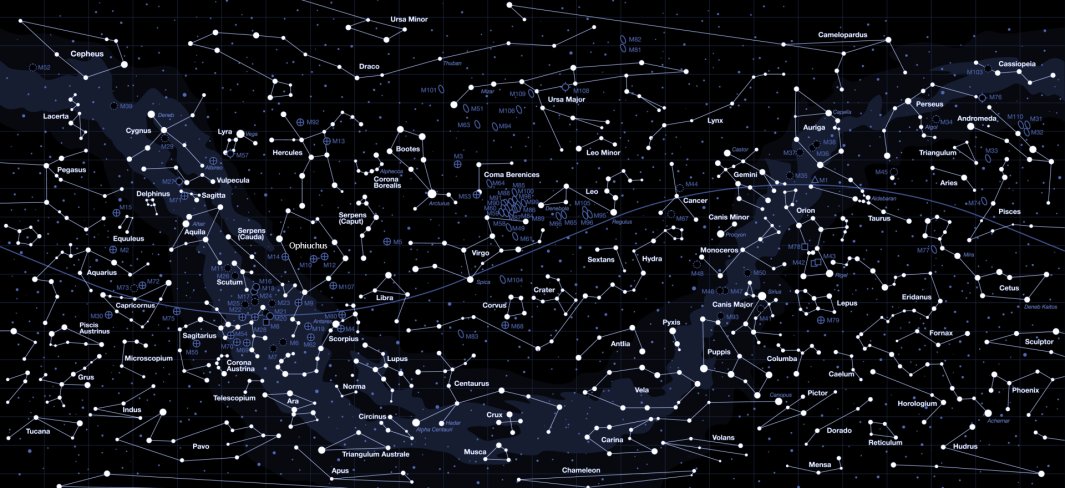
I think that resting in a cognitive sense, will not be a reaction that is the same as from exhaustion or burnout, because those states imply a loss of control, a depletion. This is our brain, right now, in real-time - begging for equilibrium.
We will FIND IT.
Rest, in this model, is not the cessation of thought, but the creation of a space where thought can exist without tension.
If traditional rest is about turning off, then digital-age rest is about drifting.
This makes me think about the philosophy I’ve read in my life, I’m not like, pinned to ideologies, so I find myself just reading whatever I pick up and it helps me relate things better this way.
But I think this is similar to things like Daoism, Buddhism and even parts of Hinduism.
Wait, before that, it makes me think about maybe why the wellness industry has risen astronomically, we link it to capitalistic drive (yes, true), colonial tendencies (also true) and the relationship those things have to purity ideologies (also, terrifyingly true).
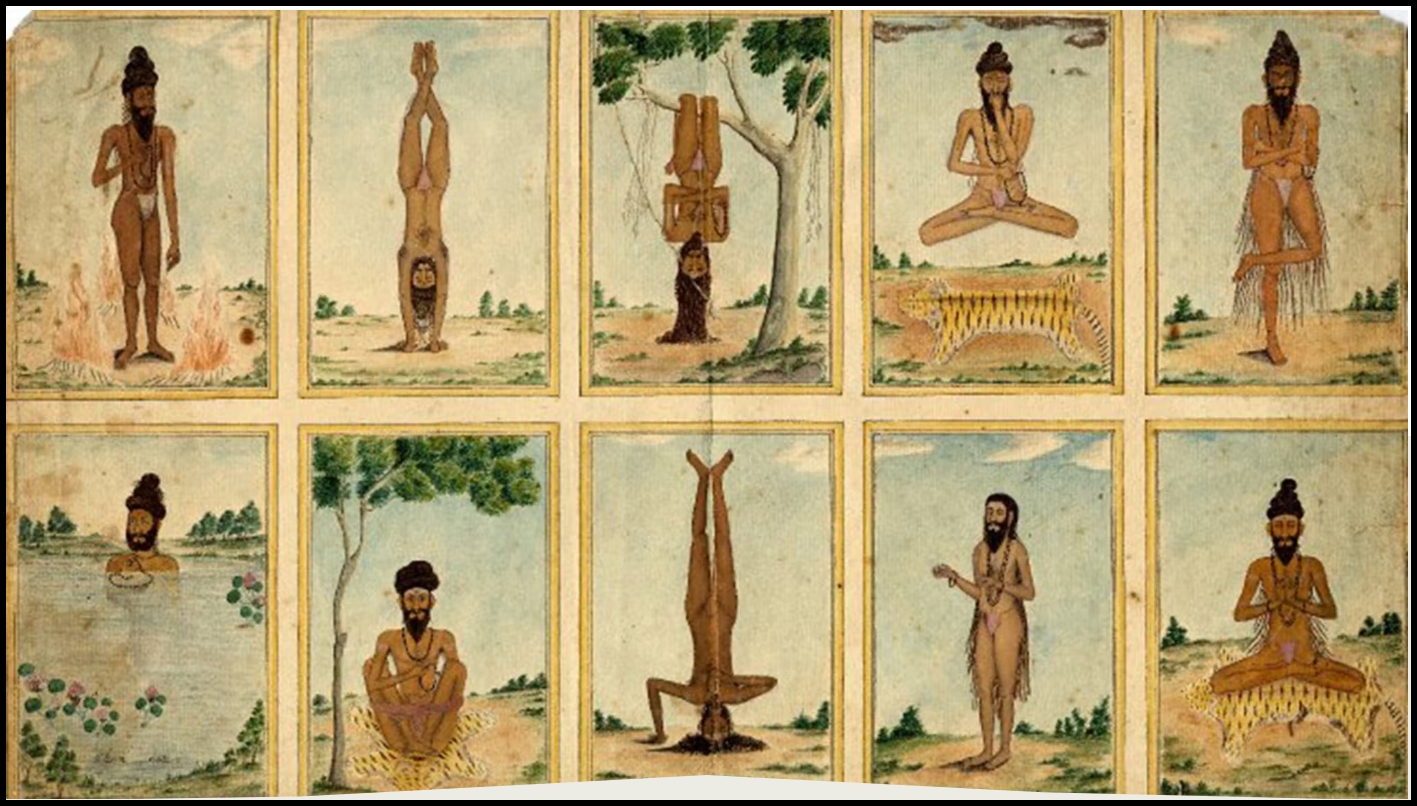
But I also think it might be because there is much more of a relationship to this cognitive shift to a new kind of rest, and it feels much more restorative, peaceful, engaging and soothing to our minds, because it is helping us rest our brains whilst we rewire.
Not entirely, but I am really unsurprised that tech lords, many many many thinkers, people with trauma such as myself, have a connection or at least an appropriation of these practices that have a serious and far reaching impact on our minds.
Sam Harris anyone? Cognition psycho reformatted into edge-lord but with a dictionary of therapy-speak on hand. Also a meditation nerd.
Daoism talks about wu wei, which is often translated as "effortless action" or "non-doing." But wu wei is not about passivity or inaction—it’s about moving in harmony with the natural flow of things rather than forcing control. It’s about acting without resistance, letting things unfold rather than imposing structure.
This directly parallels the cognitive drift I’m talking about—where thought still moves, but in a way that is not forced, not strained, not in opposition to itself. When thought is allowed to exist in a state of flow rather than friction, it doesn’t become exhausted, because it is not fighting against the conditions in which it exists.

The idea of floating in a sensory deprivation tank, awake but without weight, is a accidentally a pretty good modern analogy for wu wei. The body is still active (floating), but no longer resisting gravity, friction, or external stimulus.
In Zen Buddhism, there’s a concept called mushin (無心), or "no-mind"—a state of pure awareness, where thought arises and dissipates without clinging, where one is completely present but not grasping at meaning.
This isn’t mindlessness in the sense of being vacant or absent—it’s a state where the mind flows freely, unburdened by analysis or over-identification with thoughts. It’s the mental state of a calligrapher lost in the movement of their brush, a martial artist reacting instinctively, or a musician fully immersed in playing an instrument.
Like making patterns in stone gardens, trimming Bonsai trees.
Oh that reminds me, recently I taught a class that was centered around topography of wine regions in Italy, but we were specifically looking at regions that were defined by low hills, with smooth undulating flows.
I read that in survival psychology (lol, didn’t know THAT was a thing) that humans are actually wired to perceive rhythms like flowing, steadily moving undulations, as calming, a non-threat, and a sign that you can rest and potentially make camp unimposed.
What’s intense about this, is it exactly the opposite of how the internet currently trains the mind to function, online engagement demands constant categorisation, reaction, and immediate evaluation - it is like a heart rate monitor graph, except you’re intermittently defibrillated or shaken.
The digital mind is wired to scan, compare, and decide at all times, making the idea of mushin difficult to access—but also more necessary than ever.

Okay, I’m still answering this question…
Told you I’m relentless.